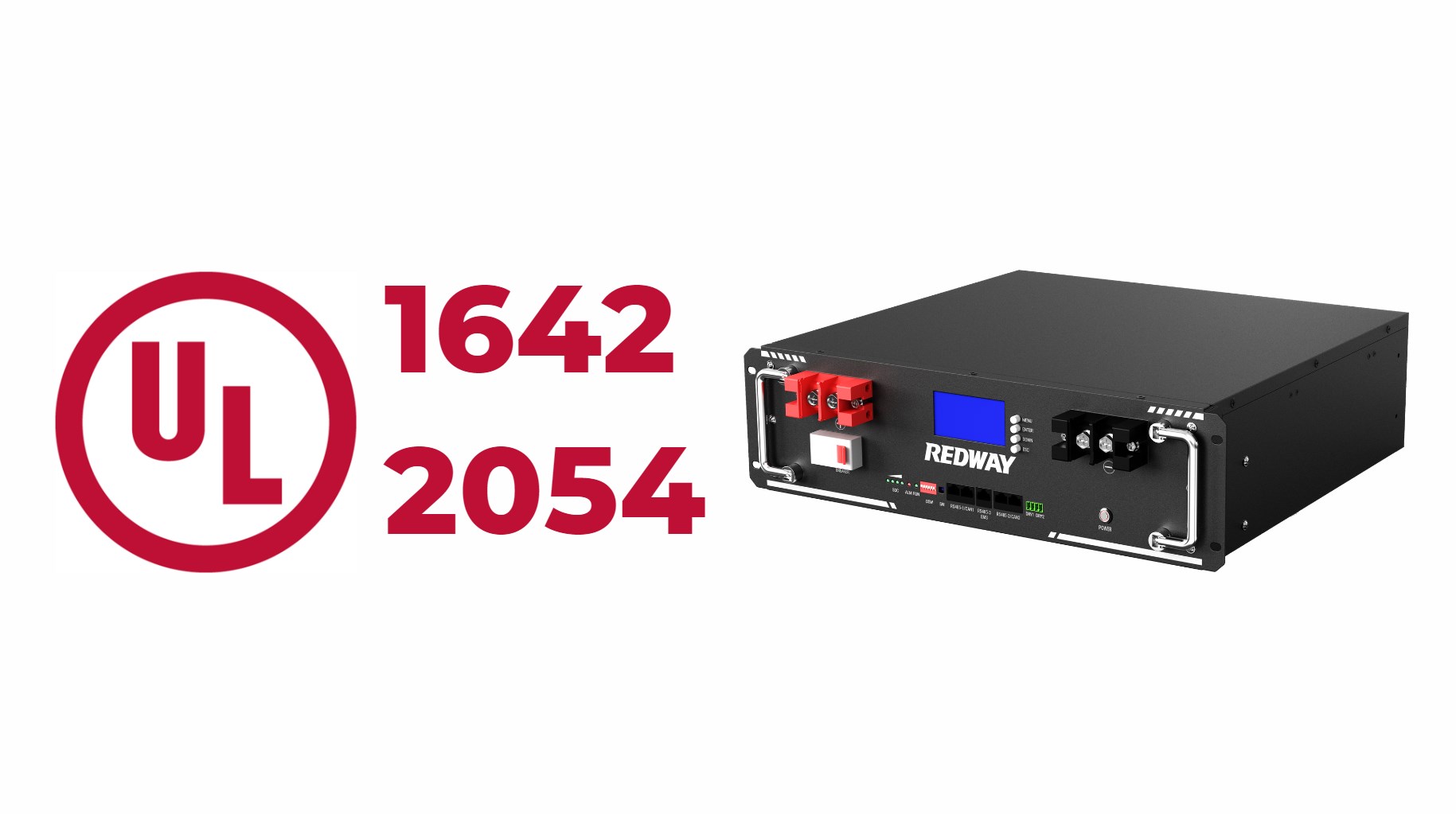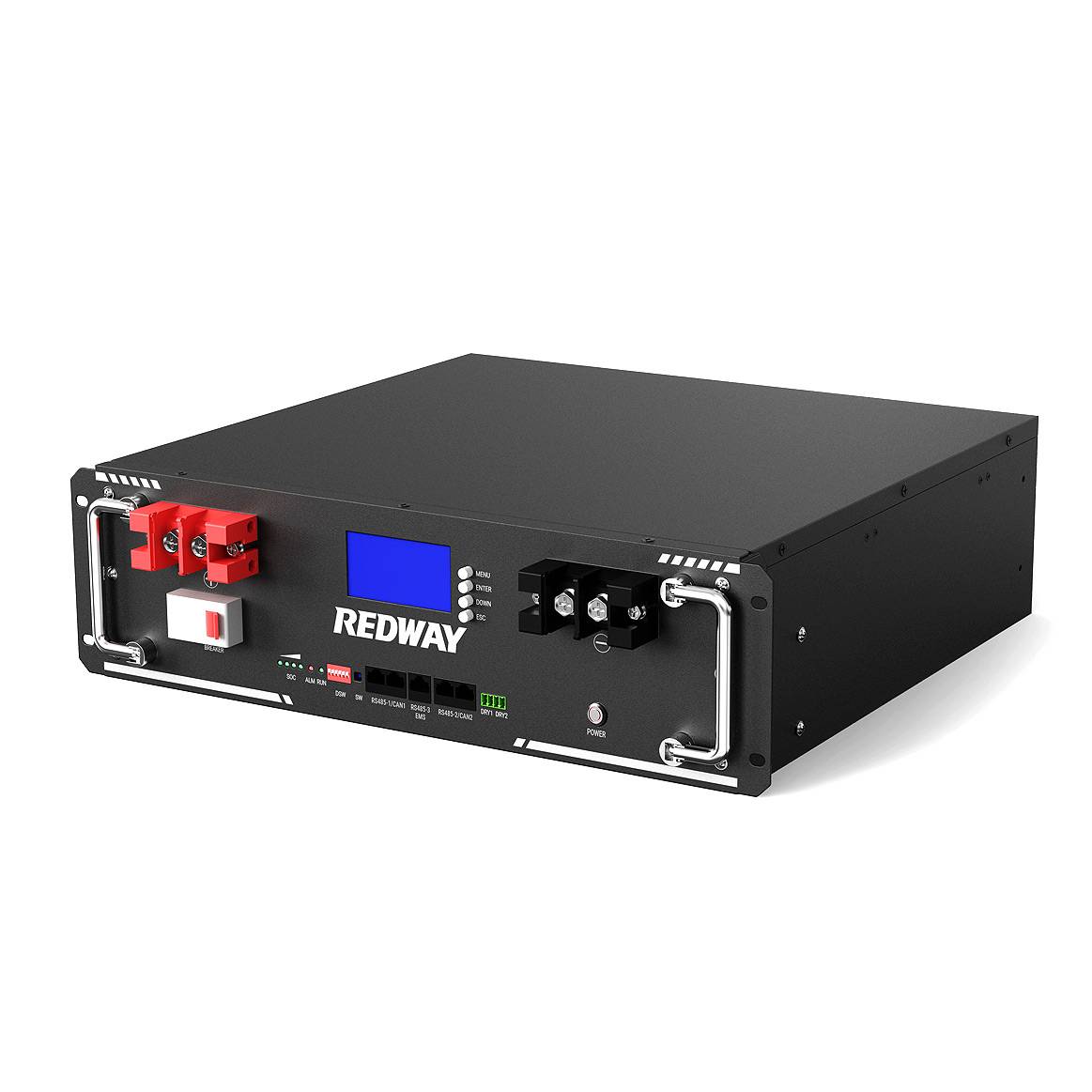In the battery manufacturing industry, safety is of utmost importance, particularly for companies like Redway Battery, which specializes in Lithium LiFePO4 batteries. Understanding the specific testing requirements for UL 2054 and UL 1642 certifications is essential for ensuring product safety and reliability. This article provides an in-depth look at these requirements, highlighting their significance in maintaining high safety standards.
UL 2054 and UL 1642 certifications require batteries to undergo rigorous testing to ensure safety and reliability. UL 2054 focuses on consumer product safety, testing electrical performance, short-circuit behavior, thermal runaway, temperature cycling, and overcharge. UL 1642, tailored for lithium batteries, includes additional testing for mechanical shock, crush, puncture, abuse, and temperature cycling. By meeting these testing requirements, batteries can withstand various conditions and abuse scenarios, ensuring optimal safety and performance.
Overview of UL Standards
Before diving into the specific testing requirements, it is important to understand the purpose of these standards:
- UL 2054: This standard focuses on the safety of batteries used in consumer products. It evaluates their performance under normal usage conditions, ensuring that they operate safely and effectively.
- UL 1642: This standard is tailored specifically for lithium batteries, emphasizing their safety during extreme conditions and potential abuse scenarios. It is particularly relevant for manufacturers producing lithium-based technologies.
Testing Requirements for UL 2054
UL 2054 outlines several critical testing requirements aimed at ensuring battery safety:
1. Electrical Performance Testing
- Capacity Testing: Batteries must be tested to determine their capacity under specified conditions. This ensures that they can deliver the expected energy output.
- Discharge Testing: Evaluating how batteries perform during discharge cycles is essential to understand their efficiency and reliability.
2. Short-Circuit Behavior
- Batteries are subjected to short-circuit tests to assess their response under fault conditions. This testing helps identify potential risks associated with short circuits, which can lead to overheating or fires.
3. Thermal Runaway Testing
- Thermal runaway tests are conducted to evaluate a battery’s ability to withstand extreme temperatures without entering a state of uncontrolled overheating. This is crucial for preventing catastrophic failures.
4. Temperature Cycling Tests
- Batteries undergo temperature cycling tests to assess their performance across a range of temperatures. This ensures that they can function reliably in varying environmental conditions.
5. Overcharge Testing
- Overcharge tests are performed to evaluate how batteries respond when subjected to charging beyond their maximum capacity. This helps mitigate risks associated with overcharging, which can lead to overheating and potential fires.
Testing Requirements for UL 1642
UL 1642 includes additional testing requirements specifically designed for lithium batteries:
1. Mechanical Shock Testing
- Lithium batteries must endure mechanical shock tests that simulate real-world impacts. This ensures that they can withstand physical stress without compromising safety.
2. Crush Testing
- Batteries are subjected to crush tests to evaluate their structural integrity under extreme pressure. This testing helps prevent failures that could result from external forces.
3. Puncture Testing
- Puncture tests assess how batteries react when penetrated by sharp objects. This is particularly important for lithium batteries, as punctures can lead to dangerous reactions.
4. Abuse Testing
- UL 1642 mandates extensive abuse testing to evaluate how batteries perform under extreme conditions such as high temperatures, overcharging, and physical damage. This ensures that they remain safe even when subjected to unexpected stresses.
5. Temperature Cycling Tests
- Similar to UL 2054, UL 1642 also requires temperature cycling tests to ensure that lithium batteries can operate safely across a wide range of temperatures.
Comparative Summary of Testing Requirements
| Test Type | UL 2054 Requirements | UL 1642 Requirements |
|---|---|---|
| Electrical Performance | Capacity, Discharge | Capacity, Discharge |
| Short-Circuit Behavior | Yes | Yes |
| Thermal Runaway | Yes | Yes |
| Mechanical Shock | No | Yes |
| Crush Testing | No | Yes |
| Puncture Testing | No | Yes |
| Temperature Cycling | Yes | Yes |
| Overcharge Testing | Yes | No |
Recent Developments in Battery Safety Standards
As of October 2024, there have been significant advancements in battery safety regulations:
- Industry leaders are advocating for updated testing protocols that address emerging technologies such as solid-state batteries, which promise enhanced safety features but require rigorous evaluation under existing standards like UL 2054 and UL 1642.
- Additionally, there is an increasing focus on sustainability within battery manufacturing processes. Companies like Redway Battery are adapting by integrating eco-friendly materials while maintaining compliance with safety standards.
Conclusion
The specific testing requirements outlined in UL 2054 and UL 1642 certifications play a vital role in ensuring the safety and reliability of batteries, particularly lithium-based technologies. By adhering to these rigorous standards, manufacturers like Redway Battery not only enhance user safety but also build trust in their products while reducing liability risks. Continued compliance with these evolving standards will be crucial as the industry advances toward more innovative battery technologies.
FAQs
What types of batteries does UL 2054 cover?
UL 2054 covers various types of household and commercial batteries beyond just lithium chemistries.
Why is mechanical shock testing important?
Mechanical shock testing ensures that batteries can withstand impacts without compromising safety or performance.
How can manufacturers demonstrate compliance with these standards?
Manufacturers should collaborate with certified laboratories to conduct thorough evaluations based on the relevant UL standards before launching their products into the market.
Related:
What Are the Specific Testing Requirements for UL 2054 and UL 1642 Certifications?
How Does Redway Battery Ensure Compliance with UL 2054 and UL 1642 Standards?
Which Industries Rely Most Heavily on UL 2054 and UL 1642 Compliant Batteries?
How Do UL 2054 and UL 1642 Standards Impact Battery Safety?
What Are the Key Differences Between UL 2054 and UL 1642 Standards?







